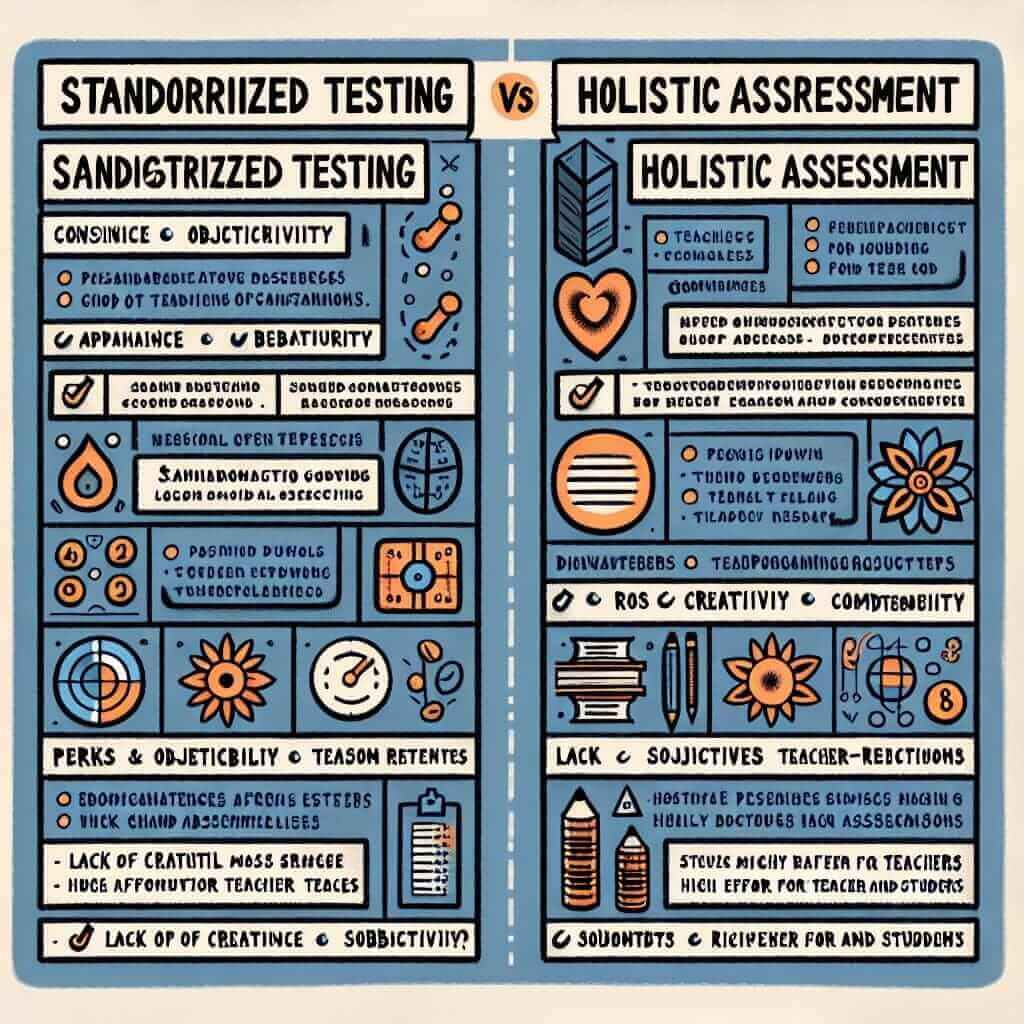“The role of educational policy in shaping school practices” is a topic frequently appearing in IELTS Writing Task 2, prompting test-takers to analyze the intricate relationship between policy decisions and their tangible effects on educational institutions. This essay will delve into this topic, exploring its nuances and providing a sample answer to demonstrate how to effectively address such a prompt.
Sample IELTS Essay Question
Governments play a crucial role in shaping education systems. Some believe that standardized testing is the most effective way to evaluate the quality of education, while others argue for more holistic approaches. Discuss both views and give your own opinion.
Analysis of the Question
This question presents a classic “discuss both views and give your opinion” structure. It requires you to:
- Acknowledge both sides: Explain why some people support standardized testing and why others prefer holistic assessments.
- Present your opinion: Clearly state your stance on the issue and support it with relevant arguments.
- Maintain a balanced approach: While expressing your viewpoint, avoid completely dismissing the opposing perspective.
Sample Essay
Educational policy serves as the bedrock upon which educational systems are built. While standardized testing has long been a cornerstone for evaluating educational quality, a growing chorus advocates for more holistic approaches. This essay will delve into both perspectives before concluding that a balanced approach, incorporating aspects of both, best serves the multifaceted nature of education.
Proponents of standardized testing argue that it provides a fair and objective measure of student achievement. By administering the same exam to all students within a particular region or country, policymakers can gauge the effectiveness of different educational programs and identify areas requiring improvement. This data-driven approach allows for targeted interventions and resource allocation, potentially leading to a more equitable and efficient education system.
Conversely, critics of standardized testing posit that it presents an incomplete and potentially misleading picture of student learning. By focusing primarily on rote memorization and narrow skill sets, standardized tests often fail to assess critical thinking, creativity, and other essential 21st-century skills. This overemphasis on standardized testing can also lead to a narrowing of the curriculum, as teachers feel pressured to “teach to the test” rather than fostering a love of learning and holistic development.

In my view, a balanced approach that incorporates both standardized testing and holistic assessments is essential. Standardized tests, when used judiciously, can provide valuable data for policymakers and educators. However, they should be complemented by a broader range of assessment methods, such as portfolios, presentations, and project-based assessments, which can more accurately capture the depth and breadth of student learning. By embracing a more comprehensive approach to assessment, we can ensure that educational policy effectively shapes school practices to cultivate well-rounded individuals equipped to thrive in an ever-evolving world. (Word count: 322)
Notes on the Essay:
Vocabulary & Grammar:
- Judiciously: (adv) /dʒuːˈdɪʃ.əs.li/ – With good judgment or sense.
- Holistic: (adj) /hoʊˈlɪs.tɪk/ – Relating to or concerned with complete systems rather than individual parts.
- Rote memorization: Memorizing something by repetition without understanding its meaning.
- Narrowing of the curriculum: Reducing the variety of subjects or topics taught in schools.
- “Teach to the test”: Focusing teaching only on what will be on standardized tests.
Structure:
- Clear introduction: Introduces the topic and clearly states the essay’s position.
- Well-developed paragraphs: Each body paragraph focuses on one aspect of the argument.
- Cohesive devices: Words like “conversely,” “however,” and “in my view” ensure a smooth flow of ideas.
- Strong conclusion: Summarizes the main points and restates the writer’s opinion.
Difficult Vocabulary:
- Proponent (n.) /prəˈpoʊ.nənt/: A person who advocates a theory, proposal, or project.
- Objective (adj.) /əbˈdʒek.tɪv/: Not influenced by personal feelings or opinions in considering and representing facts.
- Equitable (adj.) /ˈek.wɪ.tə.bl/: Fair and impartial.
- Posit (v.) /ˈpɑː.zɪt/: Put forward as a fact or basis for argument.
- Multifaceted (adj.) /ˌmʌl.tiˈfæs.ə.t̬ɪd/: Having many different aspects or features.
Conclusion
Understanding “The role of educational policy in shaping school practices” is crucial for success in the IELTS Writing Task 2. This essay has provided a framework for analyzing such prompts and crafting well-structured responses. Remember to employ a variety of vocabulary, demonstrate grammatical accuracy, and present a coherent argument to achieve a high band score.